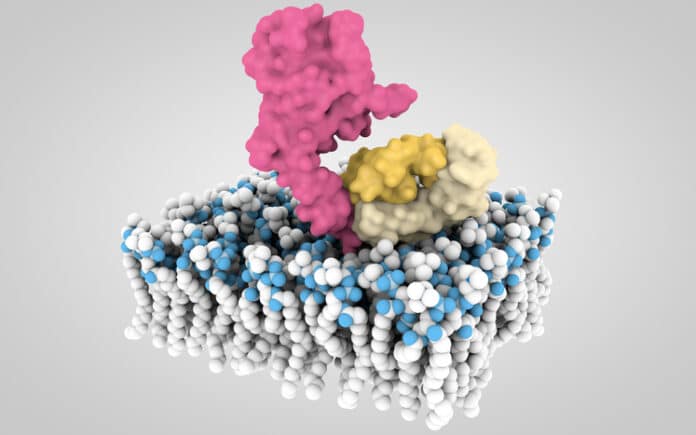
Researchers at the Dana-Farber Cancer Institute, reporting at the European Society of Medical Oncology Congress in Barcelona, say that an antibody-drug conjugate that delivers chemotherapy directly to the tumor site has show “impressive” activity against HER2-positive breast cancer that has spread to the brain. The findings, according to the study leaders, reinforces earlier research into the benefits the drug trastuzumab-deruxtecan (T-DXd).
The data from the DESTINY-Breast 12 trial, point to encouraging results for a cancer that is typically very hard to treat with standard approved therapies. “As many as half of patients with HER2-positive breast cancer develop brain metastases, which often has a poorer prognosis than breast cancer that hasn’t spread to the brain,” said Nancy Lin, MD, leader of the trial and senior author of the study published in Nature Medicine.
Current treatment for brain metastases typically rely on localized therapies including surgery, radiosurgery, and radiation therapy to the brain. The treatments, however, typically are not lasting as disease usually progresses in the central nervous system (CNS)—in both the brain and spinal cord—within six to 12 months of treatment.
The worldwide DESTINY-Breast 12 clinical trail enrolled 504 patients with HER2-positive breast cancer treated at 78 centers in Western Europe, Japan, Australia, and the U.S. Of those, 263 had active or stable brain metastases and 241 had no brain metastases. All participants had received at least one therapy before being enrolled in the trial.
At a median follow-up of 15.4 months, progression-free survival (PFS) of those with brain metastases was a median of 17.3 months. Twelve-month PFS was found in 61.6% of the enrolled patients, while another 71% of participants had an intracranial objective response, defined as a measurable decrease in their cancer in the central nervous system.
Unsurprisingly, there was also high level of response in tumors located outside the CNS in patients both with and without brain metastases. Among patients in both groups, 90% were still alive, a year after beginning treatment with T-DXd.
Side effects of the antibody-drug conjugate were similar to previous studies: nausa, constipation, neutropenia, fatigue, and anemia. Interstitial lung disease, which is known, potentially side effect of T-DXd treatment was also observed at similar levels as prior research and highlight the need for treating physicians to monitor their patients for its development.
In conclusion, Lin, who is also the associate chief of the division of breast oncology at the director of the metastatic breast cancer program at Dana-Farber said: “Our data show that T-DXd has substantial and durable activity within the brain in patients with HER2-positive breast cancer that has metastasized there.”
T-DXd comprises the chemotherapy agent deruxtecan linked to trastuzumab a monoclonal antibody that targets the HER2 protein on breast cancer cells. It is a common treatment of HER2-positive breast cancer that has spread to other parts of the body, including the brain.










![Best Weight Loss Supplements [2022-23] New Reports!](https://technologytangle.com/wp-content/uploads/2022/12/p1-1170962-1670840878.png)




